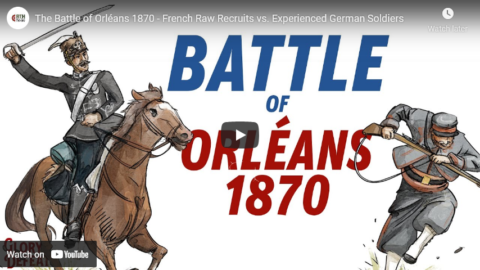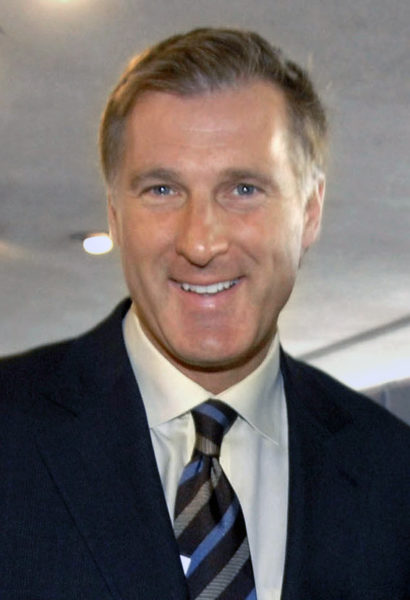Real Time History
Published 14 Oct 2021All across France French Armies have been raised from any available troops. From international volunteers to raw teenaged recruits. How these sub-par soldiers fare against professional German soldiers is not hard to guess and we can see how that goes in the first battles for Orléans.
Special Thanks to Jonathan Ferguson from Royal Armouries. Check out their Channel: https://www.youtube.com/RoyalArmouries
» THANK YOU TO OUR CO-PRODUCERS
John Ozment
James Darcangelo
Jacob Carter Landt
Thomas Brendan
James Giliberto
Kurt Gillies
Albert B. Knapp MD
Tobias Wildenblanck
Richard L Benkin
Scott Deederly
John Belland
Adam Smith
Taylor Allen
Jim F Barlow
Rustem Sharipov» OUR PODCAST
https://realtimehistory.net/podcast – interviews with historians and background info for the show.» LITERATURE
Arand, Tobias: 1870/71. Der Deutsch-Französische Krieg erzählt in Einzelschicksalen. Hamburg 2018Milza, Pierre: L’année terrible. La guerre franco-prussienne. Septembre 1870 – mars 1871. Paris 2009
» SOURCES
Bernhardt, Sarah: Mein Doppelleben. Leipzig 1908Hérisson, Maurice Graf d’: Journal d’un officier d’ordonannce. Juillet 1870 – Février 1871. Paris 1885
Kühnhauser, Florian: Kriegs-Erinnerungen eines Soldaten des königlich bayerischen Infanterie Leibregiments. Partenkirchen 1898 (Neudruck 2012)
Meisner, Heinrich Otto (Hrsg.): Kaiser Friedrich III. Das Kriegstagebuch von 1870/71. Berlin, Leipzig 1926
N.N. (Hrsg.): Theodor Fontane. Kriegsgefangen – Erlebtes 1870. Briefe 1870/71. Berlin (Ost) 1984
» OUR STORE
Website: https://realtimehistory.net»CREDITS
Presented by: Jesse Alexander
Written by: Cathérine Pfauth, Prof. Dr. Tobias Arand, Jesse Alexander
Director: Toni Steller & Florian Wittig
Director of Photography: Toni Steller
Sound: Above Zero
Editing: Toni Steller
Motion Design: Philipp Appelt
Mixing, Mastering & Sound Design: http://above-zero.com
Maps: Battlefield Design
Research by: Cathérine Pfauth, Prof. Dr. Tobias Arand
Fact checking: Cathérine Pfauth, Prof. Dr. Tobias ArandChannel Design: Battlefield Design
Contains licensed material by getty images
All rights reserved – Real Time History GmbH 2021
October 15, 2021
The Battle of Orléans 1870 – French Raw Recruits vs. Experienced German Soldiers
Alphonso Davies is “CONCACAF’s best player — which is to say, the continent’s best player”
I had been a follower of the Canadian national soccer teams back when I was coaching my son and his friends in U-4 through U-16 house league soccer, but while the women’s team is among the world’s best, the men’s team has always lagged a long way behind. In Thursday’s NP Platformed newsletter, Colby Cosh shows that there’s a very big spark of hope in the person of Alphonso Davies of Edmonton:

Alphonso Davies playing for FC Bayern Munich, 28 April, 2019.
Photo by Granada via Wikimedia Commons.
Reaching the [2022 FIFA World Cup] tournament involves finishing in the top four in an eight-country “octagonal” round-robin tournament that include the best sides from our continental soccer federation, CONCACAF. Last night, Canada faced a critical home match in Toronto against a traditional close rival, Panama, who stood just ahead of us in the octagonal table after a shock 1-0 home win against the United States.
This game wasn’t a very big deal even in dedicated sports media, but if you were paying close attention, you knew this was a crucial match for our World Cup hopes, which have quietly begun to build in the last year or two. Panama has a strong side, strong enough to have qualified for the 2018 World Cup finals ahead of us. But some awesome young Canadian talent is coming into full flower, and our country now possesses, by common consensus, CONCACAF’s best player — which is to say, the continent’s best player.
If anyone doubted the credentials of 20-year-old Edmontonian Alphonso Davies before last night, they have been silenced, if not entombed. Canada fell behind one-nil to Panama early in the match, then equalized shortly before half-time. Panama was lucky, at that point, to stand even, and their players knew it.
That’s when Davies, who had already filled a highlight reel with unstoppable dribbles in the first 45 minutes, put Canada ahead with the most astonishing goal ever scored by any man wearing the national colours. [Twitter link] Let us emphasize: you don’t need to be a soccer fan to appreciate this one. Phonzie’s pursuit and robbery of Panama’s Harold Cummings, who had a 35- or 45-metre head start to a harmless ball on the touchline, resembles nothing so much as the targeting and evisceration of an antelope by a cheetah. Davies then humiliated a second defender and wrong-footed Panama keeper Luis Mejia, who certainly would have made a better effort if his soul hadn’t already departed his body.
The match ended 4-1 in Canada’s favour, with Panama visibly discouraged at the failure of brutal rugby tactics facilitated by a typically inept CONCACAF referee. Davies plays his professional football at Euro-giant club Bayern Munich, and his galactico ability is no secret across the pond. Over here, he has already won (half of) a Lou Marsh Trophy as Canadian sportsman of the year. But one doubts, talking to people who don’t follow soccer, that he has the appropriate degree of fame in Canada yet. He is probably not as famous as Penny Oleksiak, or Bianca Andreescu, or whomever’s the seventh defenceman on the Montreal Canadians depth chart.
Two years ago, the possibility that Davies might one day help drag Canada to a World Cup final or two was a foggy hypothetical for the future. Last night he took a giant step, or several hundred of them, toward doing exactly that. Canada still has to follow through in the remaining half of the octagonal, but the outlook is now good. (Many Canadian national sides might have wilted against Panama after falling behind and being presented with rapacious unpenalized violence, but our manager John Herdman has achieved a deserved new level of respect in the past year, too.)
Nazis “Restore” Law and Order – WAH 044 – October 1942, Pt. 1
World War Two
Published 14 Oct 2021Resistance against occupation starts rising in the Autumn of 1942. It faces opposition not only from the occupiers, but also from collaborators killing their own countrymen.
(more…)
“… a preliminary Conservative estimate is that the PPC rise cost them between four and nine seats”
Matt Gurney looks at the federal Conservatives’ efforts in the September election and tries to assess how much the rise of the People’s Party of Canada impacted Conservative fortunes:
O’Toole planned to shift the CPC slightly toward the moderate centre on the assumption that the party’s traditionally lopsided wins in western Canada meant that it could lose a little on the right to flip some close seats in the east. This didn’t work. The Tories did shed support on the right, which might explain some measure of the PPC’s rise, but the CPC didn’t make up enough ground in eastern ridings to flip seats.
However, the election-night results are somewhat deceiving. O’Toole’s strategy was more effective than the final outcome suggests. In Ontario, in particular, the Conservatives materially cut into the Liberals’ advantage in the popular vote, effectively halving it, relative to 2019. This meant that the Liberals were extremely reliant on vote efficiency: a one-per cent swing of voters from the LPC to the CPC could have flipped dozens of seats, setting up a scenario where O’Toole could have been prime minister today. (These flips would not have come from the Greater Toronto Area, interestingly, where the Liberals continue to run up some lopsided victories of their own, but from other parts of Ontario and random seats all across the country. The election was closer than people realize.)
But back to the PPC. Did giving them room to grow on the right end up costing the CPC seats? If so, while that wouldn’t necessarily discredit the notion of moving the CPC toward the centre, it absolutely complicates it. If the Conservatives can’t take their right flank for granted, their lives get a lot more difficult. In a recent feature in the Toronto Star, Althia Raj, who apparently spoke to every insider on the planet, wrote that a preliminary Conservative estimate is that the PPC rise cost them between four and nine seats.
That sounds about right, and it doesn’t sound like much. Indeed, if anything, there’s reason to believe that that is overly generous to the PPC.
[…]
In aggregate terms, the author found that while you could conclude that a handful of ridings were possibly but not certainly lost due to a PPC surge, you couldn’t definitively conclude that any were lost because the Conservatives gave up ground on the right. This gets us to the low-end figure cited by Raj, but looking at this report, I don’t know where the rest could possibly have come from.
Every additional seat would have been good news for O’Toole. And the rise in the PPC vote share is worth studying on its own merits — The Line continues to work with John Wright to firm up our understanding of the PPC, both as a political and social movement.
But as an electoral force that hurt O’Toole in the last election, while we can certainly say it didn’t help, it also didn’t seem to hurt much.
Having met dozens of eager PPC supporters over the last two election campaigns, I have to believe that at most one third of them are former Tory voters … a lot of the people I met were not habitual voters for any party before the PPC came along. At one meeting I attended in 2019, there were more former Libertarian voters than Conservative voters around the table, but neither group was a majority. A lot of them were fans of Maxime Bernier personally — and note that this meeting was literally in the heart of Erin O’Toole’s own riding, a couple of blocks away from his constituency office.
RV Petrel – The Pac-Man of Wartime Shipwrecks
Drachinifel
Published 13 Nov 2019A quick summation of the excellent work being done by the RV Petrel crew and the Paul Allen Foundation.
Want to support the channel? – https://www.patreon.com/Drachinifel
Want a shirt/mug/hoodie – https://shop.spreadshirt.com/drachini…
Want a medal? – https://www.etsy.com/uk/shop/Drachinifel
Want to talk about ships? https://discord.gg/TYu88mt
Want to get some books? www.amazon.co.uk/shop/drachinifel
Drydock Episodes in podcast format – https://soundcloud.com/user-21912004
QotD: England and the English
When you come back to England from any foreign country, you have immediately the sensation of breathing a different air. Even in the first few minutes dozens of small things conspire to give you this feeling. The beer is bitterer, the coins are heavier, the grass is greener, the advertisements are more blatant. The crowds in the big towns, with their mild knobby faces, their bad teeth and gentle manners, are different from a European crowd. Then the vastness of England swallows you up, and you lose for a while your feeling that the whole nation has a single identifiable character. Are there really such things as nations? Are we not forty-six million individuals, all different? And the diversity of it, the chaos! The clatter of clogs in the Lancashire mill towns, the to-and-fro of the lorries on the Great North Road, the queues outside the Labour Exchanges, the rattle of pin-tables in the Soho pubs, the old maids hiking to Holy Communion through the mists of the autumn morning – all these are not only fragments, but characteristic fragments, of the English scene. How can one make a pattern out of this muddle?
But talk to foreigners, read foreign books or newspapers, and you are brought back to the same thought. Yes, there is something distinctive and recognizable in English civilization. It is a culture as individual as that of Spain. It is somehow bound up with solid breakfasts and gloomy Sundays, smoky towns and winding roads, green fields and red pillar-boxes. It has a flavour of its own. Moreover it is continuous, it stretches into the future and the past, there is something in it that persists, as in a living creature. What can the England of 1940 have in common with the England of 1840? But then, what have you in common with the child of five whose photograph your mother keeps on the mantelpiece? Nothing, except that you happen to be the same person.
And above all, it is your civilization, it is you. However much you hate it or laugh at it, you will never be happy away from it for any length of time. The suet puddings and the red pillar-boxes have entered into your soul. Good or evil, it is yours, you belong to it, and this side the grave you will never get away from the marks that it has given you.
Meanwhile England, together with the rest of the world, is changing. And like everything else it can change only in certain directions, which up to a point can be foreseen. That is not to say that the future is fixed, merely that certain alternatives are possible and others not. A seed may grow or not grow, but at any rate a turnip seed never grows into a parsnip. It is therefore of the deepest importance to try and determine what England is, before guessing what part England can play in the huge events that are happening.
George Orwell, “The Lion And The Unicorn: Socialism and the English Genius”, 1941-02-19.






